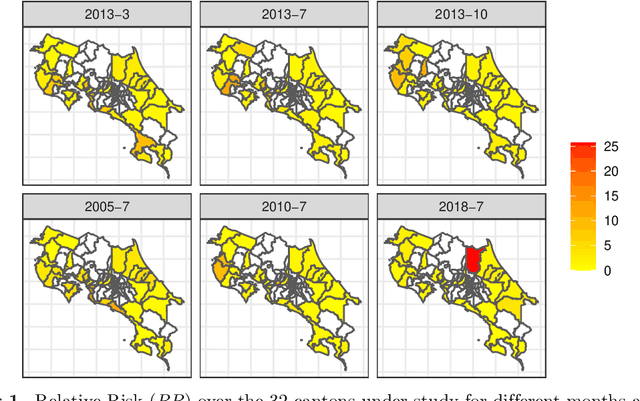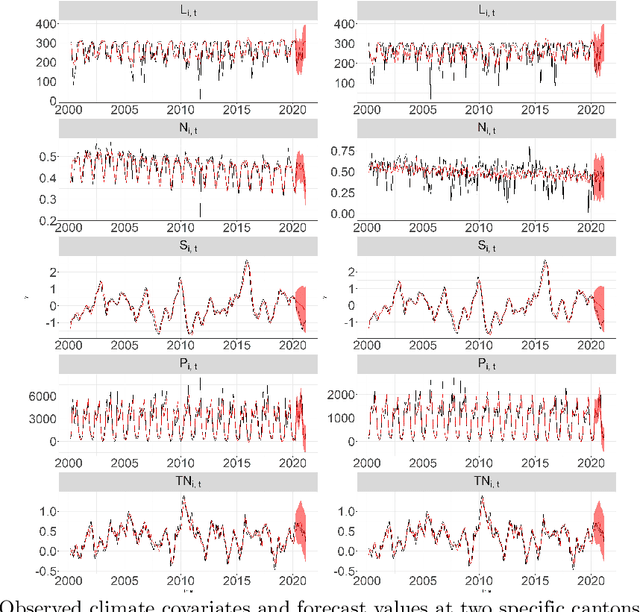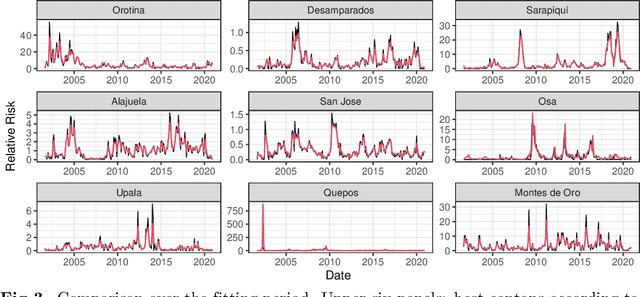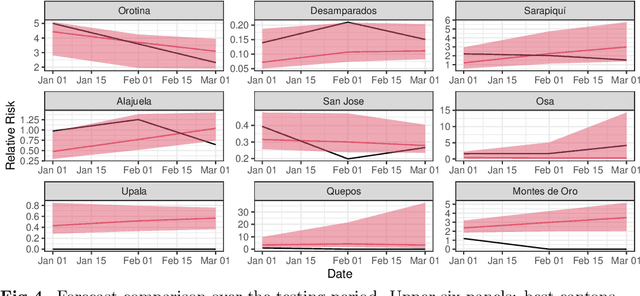Get our free extension to see links to code for papers anywhere online!Free add-on: code for papers everywhere!Free add-on: See code for papers anywhere!
Yury E. García
Assessing dengue fever risk in Costa Rica by using climate variables and machine learning techniques
Mar 23, 2022Authors:Luis A. Barboza, Shu-Wei Chou, Paola Vásquez, Yury E. García, Juan G. Calvo, Hugo C. Hidalgo, Fabio Sanchez
Figures and Tables:







Abstract:Dengue fever is a vector-borne disease mostly endemic to tropical and subtropical countries that affect millions every year and is considered a significant burden for public health. Its geographic distribution makes it highly sensitive to climate conditions. Here, we explore the effect of climate variables using the Generalized Additive Model for location, scale, and shape (GAMLSS) and Random Forest (RF) machine learning algorithms. Using the reported number of dengue cases, we obtained reliable predictions. The uncertainty of the predictions was also measured. These predictions will serve as input to health officials to further improve and optimize the allocation of resources prior to dengue outbreaks.
* 13 pages, 4 figures
Via
 Add to Chrome
Add to Chrome Add to Firefox
Add to Firefox Add to Edge
Add to Edge